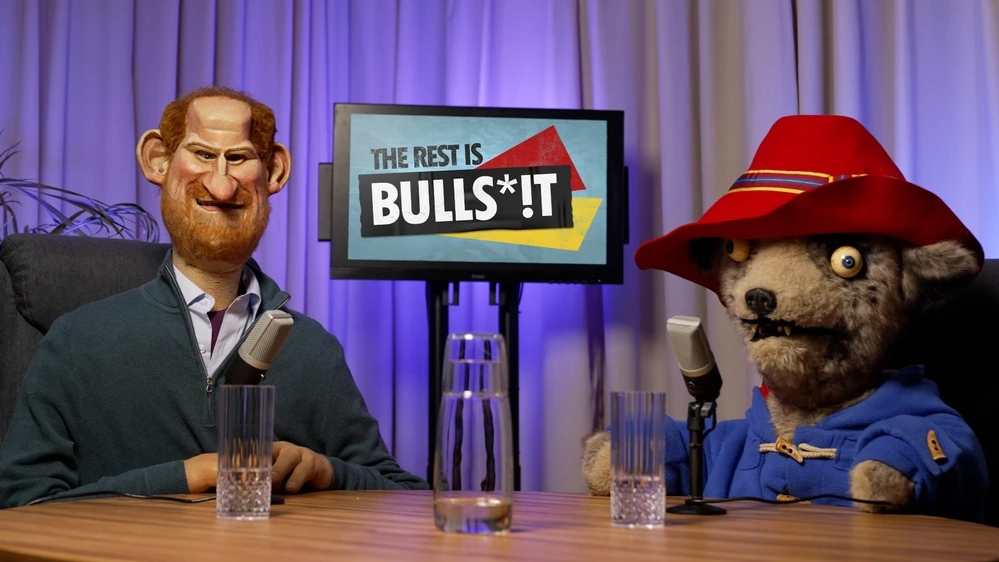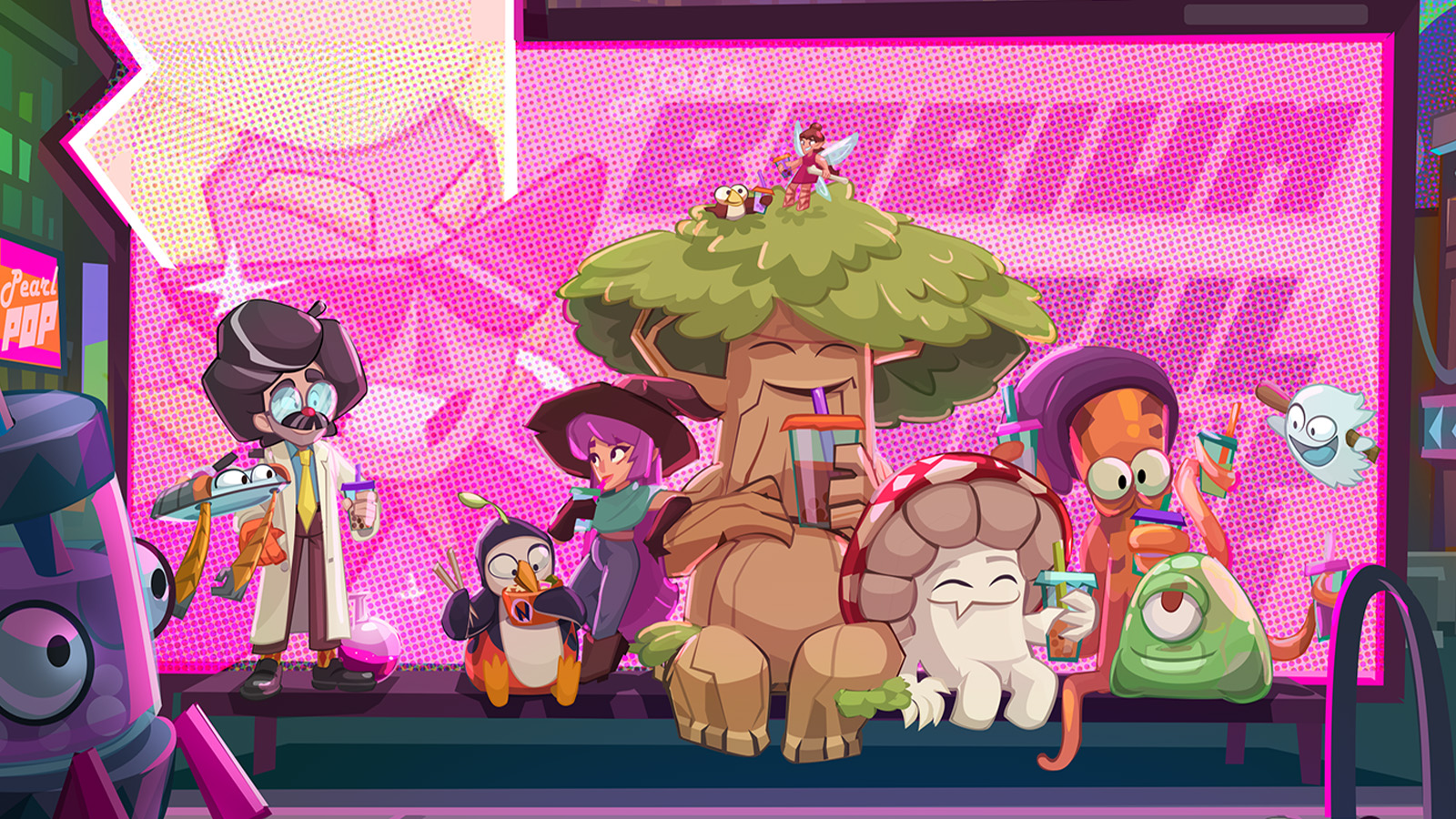Spitting Image vs Paddington Bear: the legal spat raises interesting questions
We explore what the dispute could mean for satire.

Britain’s most polite bear has found himself in the middle of an uncharacteristically grubby legal brawl. Spitting Image writer/comedians Al Murray and Matt Forde are being sued by StudioCanal – the company behind the recent Paddington films – over their portrayal of the beloved character as a foul-mouthed, drug-snorting co-host of a satirical podcast on YouTube.
The comedians call it an attack on free expression; StudioCanal calls it intellectual property infringement. Since the case made headlines, Spitting Image has doubled down – releasing another video featuring a now coatless and hatless bear still up to no good. It’s a sharp reminder that in today’s media landscape, the line between protected property and satire has never been thinner – or more fiercely contested.

The case in context
Few icons are more quintessentially British than Paddington Bear. He’s the picture of decency: polite, tidy, and partial to a marmalade sandwich. But when Spitting Image reimagined him as a cocaine-snorting, foul-mouthed co-host of a satirical podcast, the result was predictably explosive. StudioCanal filed High Court proceedings claiming copyright and design infringement.
Comedians Al Murray and Matt Forde, the creative force behind the show, say they’re baffled. To them, this is more than a legal spat – it’s an attempt to muzzle satire. “If we were going to expect anything, it would be a hard stare from Paddington.” Al joked, but the pair’s point was serious: comedy and commentary depend on the freedom to poke fun at cultural symbols.
The show itself, The Rest is Bulls*!t, parodies the booming podcast industry, pairing a puppet version of Prince Harry with a debauched Paddington.
The fallout and the new video
Since the legal case hit the headlines, Spitting Image has refused to retreat. Instead, the team released a follow-up video featuring the same unwashed bear – still snorting cocaine, still unprintably foul-mouthed – but crucially missing his trademark duffle coat and red hat. By stripping away the character’s most recognisable features, the creators acknowledge the legal proceedings but present a challenge to StudioCanal in treating a cultural icon as untouchable intellectual property.
Satire, IP and design boundaries
For creators this is a lesson in how creative work can collide with intellectual property rights. Paddington is more than a character; he’s a carefully managed brand identity, with specific colours, costume details, and even personality traits that may be part of protected intellectual property.
Daily design news, reviews, how-tos and more, as picked by the editors.
From a legal standpoint, StudioCanal’s reaction is understandable. They’ve invested millions in building a global family-friendly brand. But from a creative standpoint, the implications may be worrying. If every re-interpretation of a well-known character must first survive a legal audit, satire and cultural commentary become risky.
We’ve seen this before. Disney has pursued artists for parodying Mickey Mouse, Banksy has faced battles over copyright ownership of his own anonymous works, and AI tools now scrape vast image datasets without clear permission. Every time, the same tension emerges: the instinct to protect versus the desire to create.
Legal analysis (from what we know)
We haven’t seen the pleadings, but StudioCanal appears to be alleging copyright and design right infringement, with trade mark/passing-off claims also a possibility. Looking first at designs, registered UK designs last a maximum of 25 years. UK unregistered design right typically runs for the earlier of 10 years from first marketing or 15 years from creation. On that basis, any historic Paddington design rights may have expired.
Copyright in the character as drawn/sculpted for the films (production art, models, stills) may qualify as “artistic works,” owned by StudioCanal and lasting generally until 70 years after the death of the creator. That matters because Spitting Image didn’t just reference the idea of a polite bear; it initially borrowed recognisable visual cues (duffle coat, red hat) before stripping them out in the follow-up video – almost certainly to narrow the infringement risk.
The likely defence is the parody/caricature/pastiche exception under UK copyright law. However, for this argument to succeed, the defendants will need to demonstrate “fair dealing”. There is no statutory definition of this but the court will look at whether the amount of the copyright work taken was reasonable and appropriate. The more recognisable the lifted elements, the harder that fairness test gets. Removing the iconic hat and coat strengthens the parody position – less “taking,” same commentary – but it doesn’t guarantee success.
Trade mark infringement may also be pleaded (e.g., use of the name or image of Paddington), although there would need to be a likelihood of confusion or unfair advantage/detriment, not mere offence.
It is worth noting that the parody/caricature/pastiche defence is not available to design right infringement.
Looking forward
What happens next may set a precedent beyond this single case. If StudioCanal wins on the copyright case, expect tighter corporate control: more cease-and-desists, more risk-averse commissioning, and more self-censorship whenever a design emulates a famous character.
If Spitting Image wins, it will fortify the UK’s parody/caricature protections, confirming that artists can borrow recognisable elements to critique or comment – so long as the use amounts to “fair dealing”. The decision may enlighten us as to what “fair dealing” means in the context of parody.
Either way, creators will still need to balance their creations with relevant intellectual property rights owned by third parties.

Howard Ricklow has a strong foundation in the creative industries. His work bridges law and innovation – advising artists, designers, tech founders, and entertainment businesses on contracts, data, IP, and brand protection across music, film, gaming, fashion and luxury sectors. A published author and comedy writer, Howard brings a mix of legal precision and creative insight to his clients, helping them protect their ideas and grow with confidence in an ever-evolving digital world.
You must confirm your public display name before commenting
Please logout and then login again, you will then be prompted to enter your display name.

